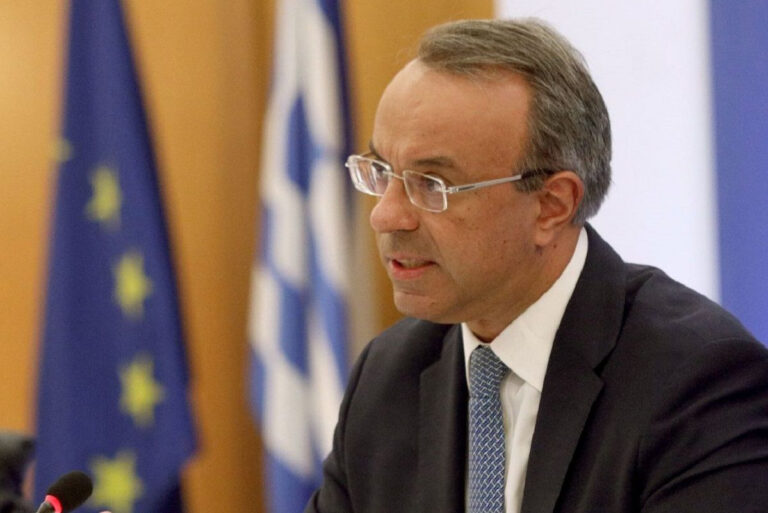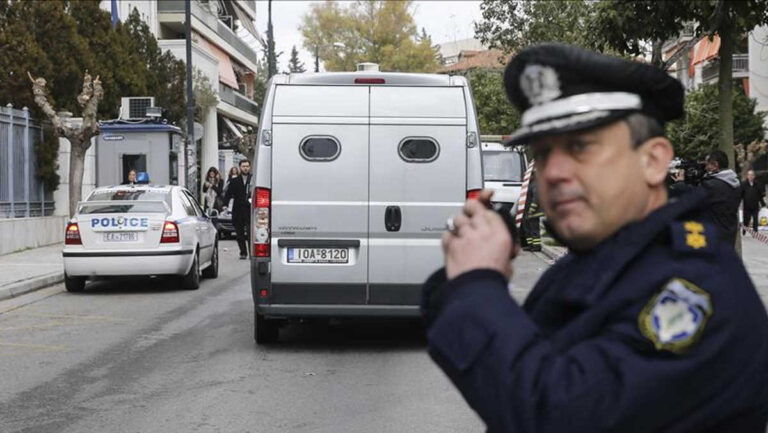The Greek Ombudsman opened an investigation into the Pylos Shipwreck that left nearly 700 dead five months ago amid ongoing deadly crossings to Greece. NGOs released a joint statement calling for an end to the inhumane conditions in the country’s reception centers. Amid concerns, European Commission President Ursula von der Leyen defended her summer holiday at the Villa of Greek Prime Minister Kyriakos Mitsotakis as “nothing unusual in political or diplomatic relations”.
The latest figures released by the Greek Migration Ministry refer to a decrease in migrant arrival in the month of October by 42.06%, compared to the previous month of September. A total of 6,581 migrants arrived in Greece during the month of October, compared to 11,470 arrivals in the previous month. Meanwhile, on 11 November, a boat carrying migrants capsized off the Turkish Aegean coastal province of Izmir, killing at least five people, the Turkish Coast Guard said, adding that a further six migrants were rescued.
On 13 November, the hotline Alarm Phone reported about 4 people including one person in need of urgent medical assistance in distress on the Greek Kos Island. “When calling Hellenic Coast Guard yesterday evening they claimed that the group was with the police. Though this morning we were able to get in touch with the group & they reported to still be in the area. Why is Hellenic Coast Guard lying & delaying rescues?”, the hotline later added. On the same day, an additional group of 20 people were reportedly in distress.
”We informed Hellenic Coast Guard immediately but when speaking to them on the phone they refused to confirm the reception of the email & hung up on us”, Alarm Phone said, adding “We received confirmation from the Turkish Coastguard that they found the group and returned them to Türkiye. Once again, is complicit in illegal and cruel Pushbacks at sea! We demand an end to these violent and often deadly practices”.
Five months after the Pylos shipwreck that led to the deaths of at least 700 people, the Greek ombudsman opened an investigation into the acts of the Hellenic Coast Guard connected to the tragic shipwreck. “Following the explicit refusal to initiate an internal disciplinary investigation by the Coast Guard, the Independent Authority decided to initiate its own investigation, with its special competence as the National Mechanism for the Investigation of Incidents of Arbitrary Incidents for acts or omissions of uniformed personnel of the LS-EL.AKT. regarding the wreck of Pylos, considering that complete transparency regarding the action of the competent officials of the Administration for this very fatal wreck is an elementary democratic request”, the ombudsman stated in a press release.
The investigation is happening as survivors of the deadly shipwreck together with refugee support organisations continue to call for justice. The survivor Ahmad Akilan in an event organised by the Leftist Greek MEP Stelios Kouloglou described how “he and many other passengers had been asking the Greek Coast Guard, Frontex and neighboring ships for hours to be brought safely to Greek shores, with no response”. He also spoke of how the Hellenic Coast Guard’s attempt to tow the ship resulted in the tragic wreck, adding “Why didn’t they help us?
Since the morning we have been asking for help, Frontex, the Hellenic Coast Guard knows it, we are at sea, we have no water and food, we have nothing, we have dead women and children, why didn’t they help us? Why didn’t they save us at night, why didn’t they save us in the morning? Why did they cause the boat to sink?”. While rescuer Jason Apostolopoulos described the country’s systematic attempts to deny assistance to people in distress as a “racist crime”, Vassilis Papadopoulos from ECRE member, the Greek Council for Refugees (GCR) and Irini Gaitanou from Refugee Support Aegean (RSA) – both organizations that filed a criminal complaint against the coast guard on behalf of more than 40 survivors – noted the authorities’ attempts to cover up the tragedy and delay an investigation.
Natassa Strachini from RSA, in a recent interview, with ECRE member Pro Asyl, said that the criminal complaint aims for the circumstances of this catastrophe” to be “fully clarified” and that “all those responsible for the deaths of more than 600 people” to be “held accountable”.
A new report by Mobile Info Team and Refugee Legal Support documents 19 experiences of people who applied for asylum after the establishment of the mainland the Reception and Identification Services (RICs) in September 2022. Based on the analysis of these experiences, both organisations note that the new system for registering asylum claims on mainland Greece imposes blanket 25-day de facto detention on asylum seekers, denies protection according to EU and Greek law and fails to identify vulnerabilities.
Besides, in a joint statement, 26 organisations including ECRE members Greek Council for Refugees, Fenix Humanitarian Legal Aid, Greek Forum of Migrants and HIAS Greece sounded the alarm on the “ongoing malfunctioning of the country’s reception system that deprives asylum seekers and refugees of access to rights and service”. “On the islands, the reception facilities (CCACs) remain in a state of overcrowding, mostly in Kos, where the new arrivals are subject to an informal detention regime until their registration, without access to a doctor following the departure of the medical staff at the end of October.
The situation is similar in Samos, where a military doctor has occasionally provided to meet the needs of almost 4,000 residents”, the press release explains. The organisations call on the Greek State, with the assistance of the EU, to “immediately ensure that the needs of all those seeking protection are met and that the long-term sustainability of the reception system is guaranteed” and end the alternative forms of reception while underlining that “Greece and the EU must manage with full respect for International Human Rights Law and the constitutional principles of the European Union”.
The European Commission President Ursula von der Leyen defended her summer holiday as a guest of Greek Prime Minister Kyriakos Mitsotakis at his villa in Crete in a reply to Dutch MEP Sophie in ’t Veld who previously noted that the president’s holiday came as the EU executive was “conspicuously silent” on numerous sensitive political issues relating to Greece including a probe into Pylos shipwreck. In the answer, von der Leyen argued that Mitsotakis’ personal invitation is “an exceptional courtesy but nothing unusual in political or diplomatic relations”.
The president added that the stay allowed for “in-depth discussions and better mutual understanding in various areas”. The European Ombudsman is looking into the issue, following a complaint by in ’t Veld, who said von der Leyen’s reply “raises more questions” and “she hasn’t really answered to queries about how she reconciles in practice her private contacts with Mitsotakis with her role as guardian of the Treaties”.
MEP Sophie in ’t Veld commented on the president’s answer saying “I respectfully but fundamentally disagree. The EC is tasked with “policing” member states and enforcing EU law, so relations are not diplomatic in nature”. Meanwhile, Greece received the highest funds for migration from the European Commission in the zone in 2023. The Commission has dished out a total amount of € 258.9 million in extraordinary financing for member states in 2023. Of this amount, € 42.4 million was given to Greece.
Source: Ecre




